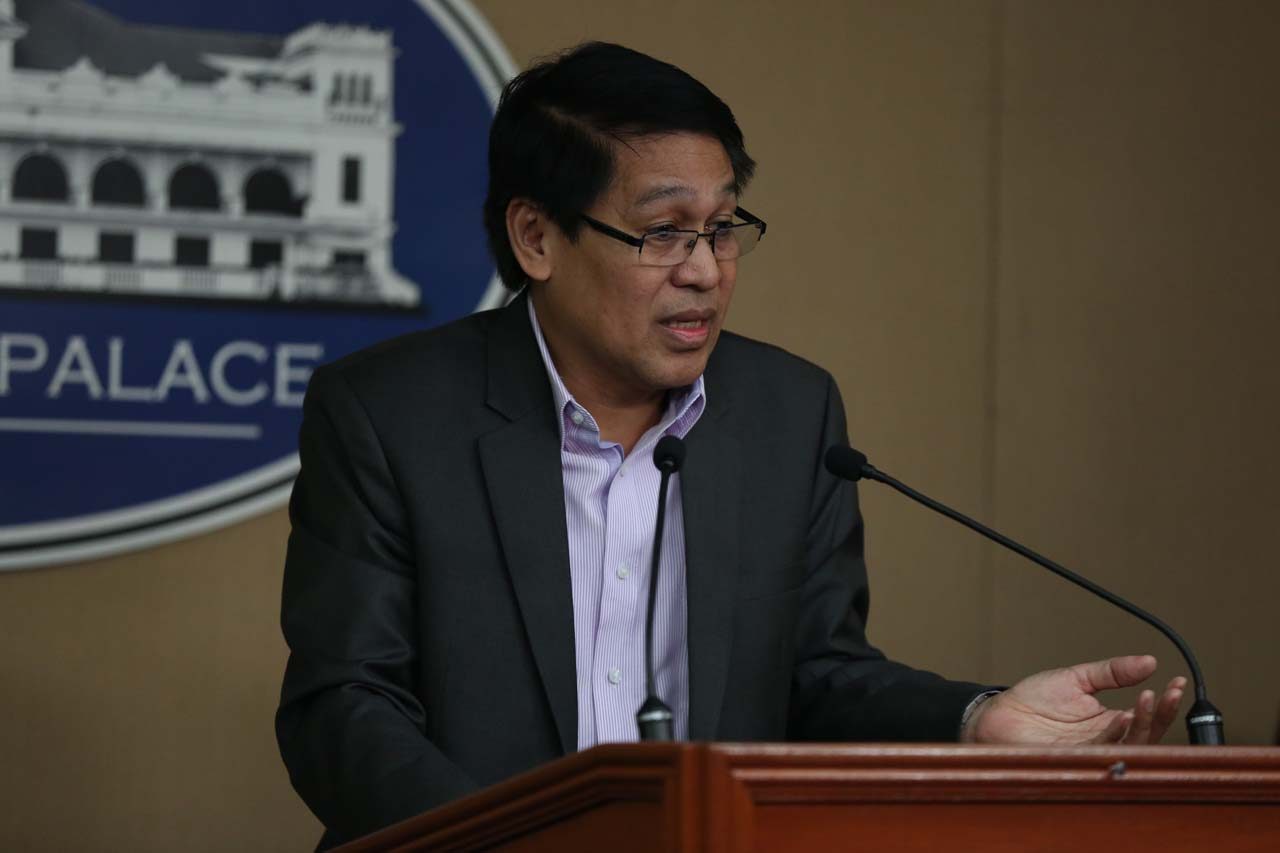SUMMARY
This is AI generated summarization, which may have errors. For context, always refer to the full article.

MANILA, Phiippines (UPDATED) – Former Commission on Higher Education executive director Julito Vitriolo has claimed that a Supreme Court (SC) ruling has made final and executory his reinstatement in CHED.
Vitriolo based his statement on the SC ruling affirming the Court of Appeals (CA) decision that ordered that he be reinstated in his old position.
“Dapat po ipatupad na ito ng CHED. Ang makakapagbago lang po sa desisyon ng Korte Suprema at kung magfa-file ng another case. Final and executory na po. Duty-bound po ang CHED na sundin ang mandato ng katastaasang hukuman,” Vitriolo told reporters in a press conference.
(CHED should implement this. Only the Supreme Court can change this or if another case is filed. This is final and executory. CHED is duty bound to follow the Supreme Court.)
Vitriolo showed reporters an entry of judgment by the SC saying that the ruling of the SC 2nd Division became final and executory on August 15.
What was the Supreme Court ruling? The SC Public Information Office (PIO) released on Wednesday, September 18, a fully copy of the 2nd Division ruling that Vitriolo was referring to.
The SC was only deciding on the appeal of the Office of the Ombudsman to intervene at the CA level, but the dispositive portion also affirmed the CA ruling on the reinstatement dated August 17, 2017.
“The (Ombudsman’s) petition is denied for lack of merit. The decision dated August 17, 2017 and Resolution dated January 29, 2018 of the Court of Appeals are hereby affirmed,” said the SC’s resolution promulgated on June 3.
Referring to this, Vitriolo said: “May entry of judgment na. Nasa dispositive portion ng CA decision [upheld by the SC] na nire-reinstate ako immediately at one month suspension ang penalty ko, on top of paying me my back wages.”
(There’s already an entry of judgment. It’s in the dispositive portion of the CA decision [upheld by the SC] that I am to be reinstated immediately and my suspension is only one month, on top of paying me my back wages.)
Vitriolo is a career official at the CHED, who is still claiming his post as executive director.
This issue had caused a power struggle in CHED between Vitriolo and then-chairperson Patricia Licuanan.
Vitriolo had filed a complaint against CHED Chairperson Prospero de Vera III for refusing to reinstate him as executive director.
What is the timeline? The Office of the Ombudsman, under Conchita Carpio Morales, dismissed Vitriolo in December 2016 for gross neglect of duty, misconduct, inefficiency, and incompetence for allowing an illegal diploma mill at the Pamantasan ng Lungsod ng Maynila.
Vitriolo immediately filed a petition for review with the CA without impleading the Ombudsman as respondent.
On August 17, 2017, the CA upheld the finding of guilt for the administrative charges but downgraded the penalty from dismissal to suspension and ordered his immediate reinstatement.
On September 28, 2017, the Ombudsman filed a motion with the appellate court asking if it could intervene in the case to be able to seek the reversal of the CA downgrade.
On January 29, 2018, the CA dismissed the Ombudsman’s motion, saying that it could not be a party to the appeal and that it was filed out of time, prompting the Ombudsman to go to the SC.
The SC decision was mainly based on a procedural flaw.
The SC overruled the CA on whether the Ombudsman can be a party. “The Court has already clarified in Ombudsman vs Bongais that the Ombudsman has legal standing to intervene on appeal in administrative cases resolved by it,” the High Court said.
However, the SC had to dismiss the Ombudsman’s motion for being filed only after the CA had already decided on the case.
“The rule requiring intervention before rendition of judgment is not inflexible,” the SC decision said, adding that there were no excepting circumstances in the case that warranted its exemption from the rule.
It was penned by Associate Justice Estela Perlas Bernabe with concurrences from Senior Associate Justice Antonio Carpio and Associate Justice Amy Lazaro Javier. – Rappler.com
Add a comment
How does this make you feel?
![[In This Economy] A counter-rejoinder in the economic charter change debate](https://www.rappler.com/tachyon/2024/04/TL-counter-rejoinder-apr-20-2024.jpg?resize=257%2C257&crop=267px%2C0px%2C720px%2C720px)
![[Vantage Point] Joey Salceda says 8% GDP growth attainable](https://www.rappler.com/tachyon/2024/04/tl-salceda-gdp-growth-04192024.jpg?resize=257%2C257&crop_strategy=attention)
![[ANALYSIS] A new advocacy in race to financial literacy](https://www.rappler.com/tachyon/2024/04/advocacy-race-financial-literacy-April-19-2024.jpg?resize=257%2C257&crop_strategy=attention)


There are no comments yet. Add your comment to start the conversation.